Most times, these festivals arise from rituals that have been passed down from generations, and are used to mark prominent events such as a new year…
By Somtochuckwu Paul
Africa is a continent that blooms with ethnic multiplicity, with cultural practices and rituals that have, over time, drawn admiration from different corners of the earth. One might ask, what is so spectacular about the ceremonies and festivities of this magnificent region? Well, the mannerisms, musical renditions, illuminative apparel, and choreographic movements that accompany these ceremonies are remarkable and intrigue anyone who witnesses them.
In Africa, festivals are significant to the natives who celebrate them. These festivals exist for all kinds of reasons but are essentially birthed from utility. Most times, these festivals arise from rituals that have been passed down from generations, and are used to mark prominent events such as a new year, harvest seasons, the initiation of a titled figure, or to pay homage to divinities. In modern times, however, festivals could exist for the sake of merriment, or for tourist attraction.
In this article, we discuss five of these rich festivals that spur from West Africa and their relevance to their communities.
Fetu Afahye
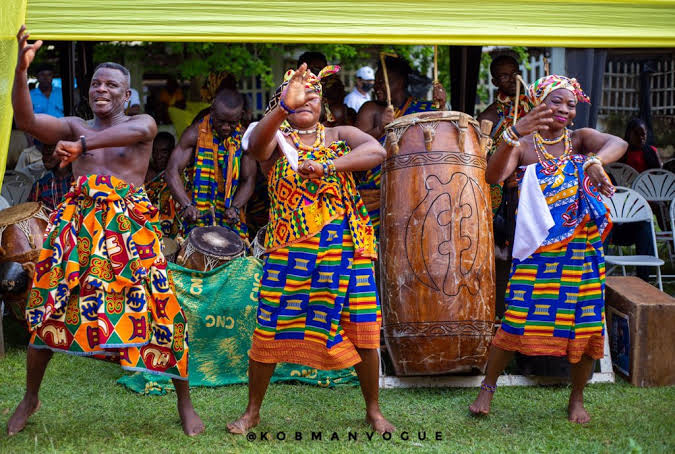
Fetu Afahye is an annual celebration observed by the Oguaa people of Cape Coast, situated in the central region of Ghana. It is a ceremonial rite that takes place on the first Saturday in September, in honour of the gods who once rescued the people from a devastating plague that threatened their existence.
Fetu Afahye is an annual tradition that is practised to maintain the land’s purity, to laud the deities that saved the people, and to prevent a similar tragedy from reoccurring. The festival is open to every member of the community, as well as to curious foreigners.
There are various activities that lead up to the celebration of Fetu Afahye. This begins in the last week of August, to ensure that all activities run smoothly. The Omanhene (head chief) goes into a solitary state, and there are also cleansing rituals, general sanitation (Amuntumadeze), and vigils. Additionally, drumming or noise-making of any kind is prohibited, and fishing from the Fosu Lagoon is halted. These are to ensure that the spirits receive a peaceful welcome into the land.
The festival kicks off with a vigil at Fosu Lagoon, where priests and priestesses call on the deities with reverberant chants, iconic dances, and powerful drumming. After this, a series of striking events follows, beginning with the Omanhene re-opening the lagoon. Natives who returned to celebrate the festival are welcomed, followed by all-around revelry.
(Read also: Dambe, a Traditional Combat Sport Worthy of Preservation)
Calabar Carnival
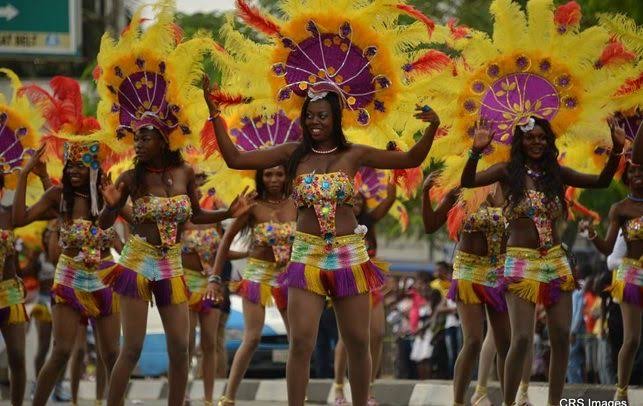
Deep in southern Nigeria, the beautiful people of Calabar, Cross River State, are the host of one of the largest festivals in Africa. The Calabar Carnival is a recurrent celebration that takes place every December. It is a more modern festival that has no ties to any traditional rites. One can say it is solely for the sake of merrymaking.
The mighty carnival is the result of an embodied vision of the state government to make Cross River a major centre for tourism. In 2004, Mr. Donald Duke, the state governor at the time, initiated the Calabar Festival as a part of the Christmas festivities. Since then, the festival has witnessed astonishing buildouts and has grown to be one of the most epic events in Nigeria and the world at large.
The carnival features tons of buoyant games and musical renditions from sensations across the globe. The Calabar festival displays the opulent African heritage. The brilliant sway of dancers, cheerful music, and luminous duds unveil the richness and finesse of the African way.
Fete des Masques
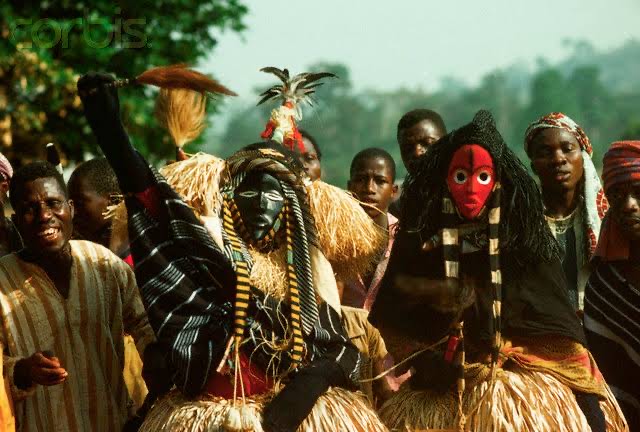
Fete des Masques (Festival of masks) is celebrated by communities in Mali and Cote d’Ivoire. Despite its shared name, the ceremony is observed differently in both regions. Fetes des Masques is the most popular ceremony in Cote d’Ivoire, and is celebrated each November in the city of Man. It pays homage to the forest spirits that inhabit brightly coloured masks, and feature all sorts of glamorous dance styles.
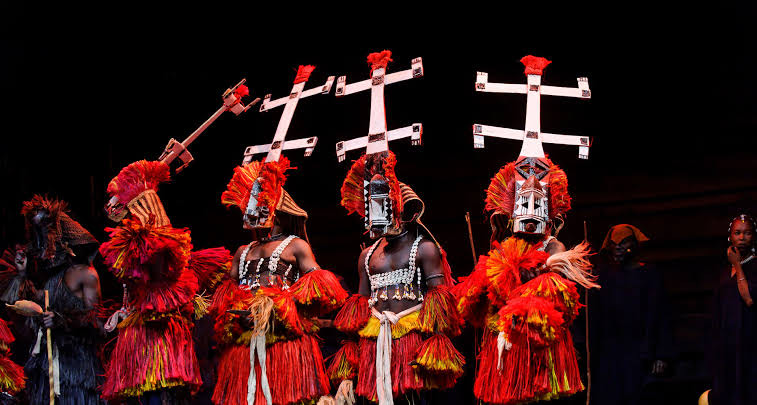
In Mali, however, the Fete des Masques is indigenous to the Dogon people and is observed in April and May, to honour those who have passed and to welcome the harvest season. For the Dogon community, masks are significant and are used for distinctive purposes. Some serve to spirit guide the younger generation, and others serve as protectors. The festival also features a series of choreographed movements used to tell the story of the Dogon tribe.
(Read also – Masquerades: Ancestral Spirits, a Dying Art, or Mere Entertainment?)
New Yam Festival
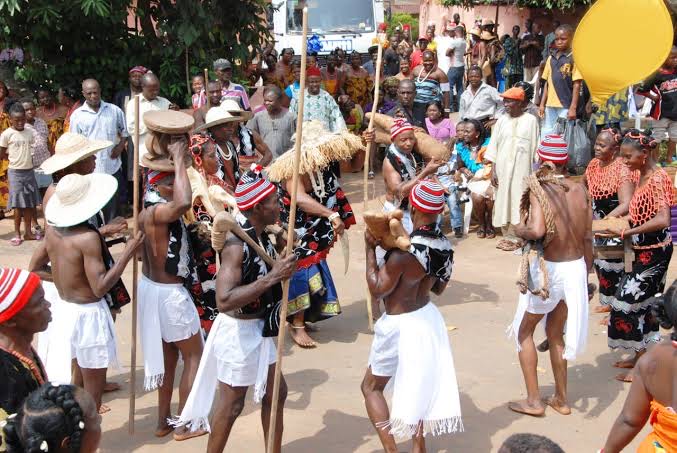
The New Yam Festival is synonymous with Igbo communities in Nigeria. It is called by many names, depending on the region’s dialect, including Orureshi, Iwa ji, Iri ji, Ike ji, and Otute. The symbolism of yams in Igbo customs makes this ceremony truly integral. In most Igbo societies, yam is tied to the land’s fertility and the quality of its harvest determines the quality of other agricultural produce for the rest of the planting season.
The New Yam Festival fundamentally marks the end of harvest and the start of a new cultivation phase. It is held early in August and can go on for several weeks. Though its practices may differ across communities, it is commonly headed by the Igwe (King), or the eldest man in the community, with all sorts of entertaining activities taking place, including native dances, masquerade displays, and fashion parades.
Eyo Festival
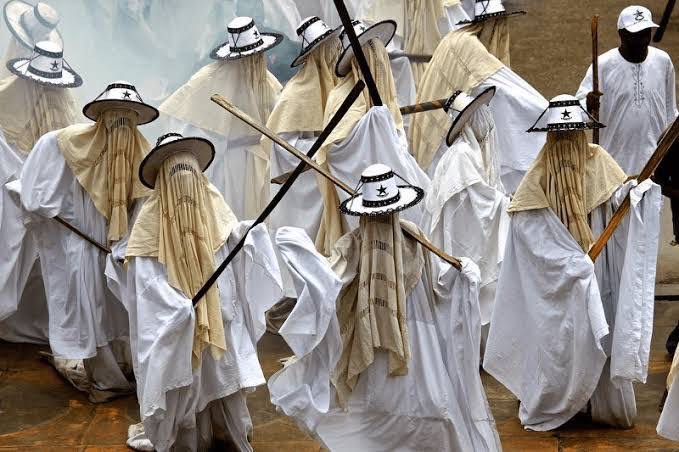
Eyo is a Yoruba festival indigenous to the people of Lagos State, Nigeria. This festival pays homage to the soul of a departed Oba (King) and ushers in a new one. There is no specific date for the Eyo festival as it majorly commemorates a change in leadership.
Eyo, in recent times, has evolved to be a leading festival in Nigeria and now serves as a hub for tourism. It has gained such global recognition that it can be celebrated to honour any notable figure in society, not just monarchs. This celebration is championed by the Eyo masquerades who enchant the audience with their alluring appearances, idiosyncrasy, and exquisite dance techniques.
Somtochukwu Paul is a writer who crafts content that explores various aspects of human experiences. He is the author behind “Memoirs of a Contemporary African”, a monthly newsletter on Substack. Through this platform, he shares intriguing narratives from his unconventional life journeys with his ever-curious readers.





Beautiful, rich information.